Courting Freedom
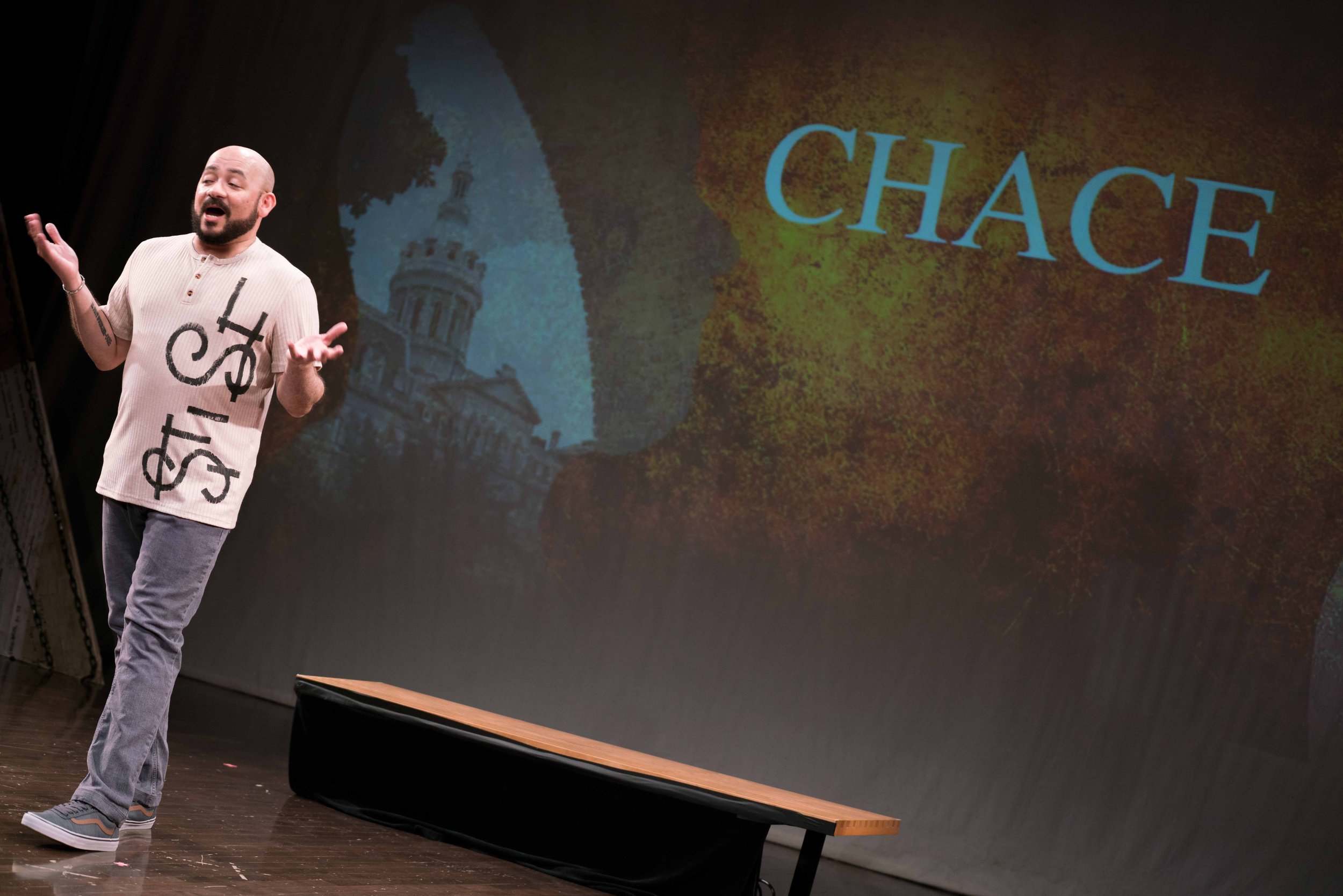
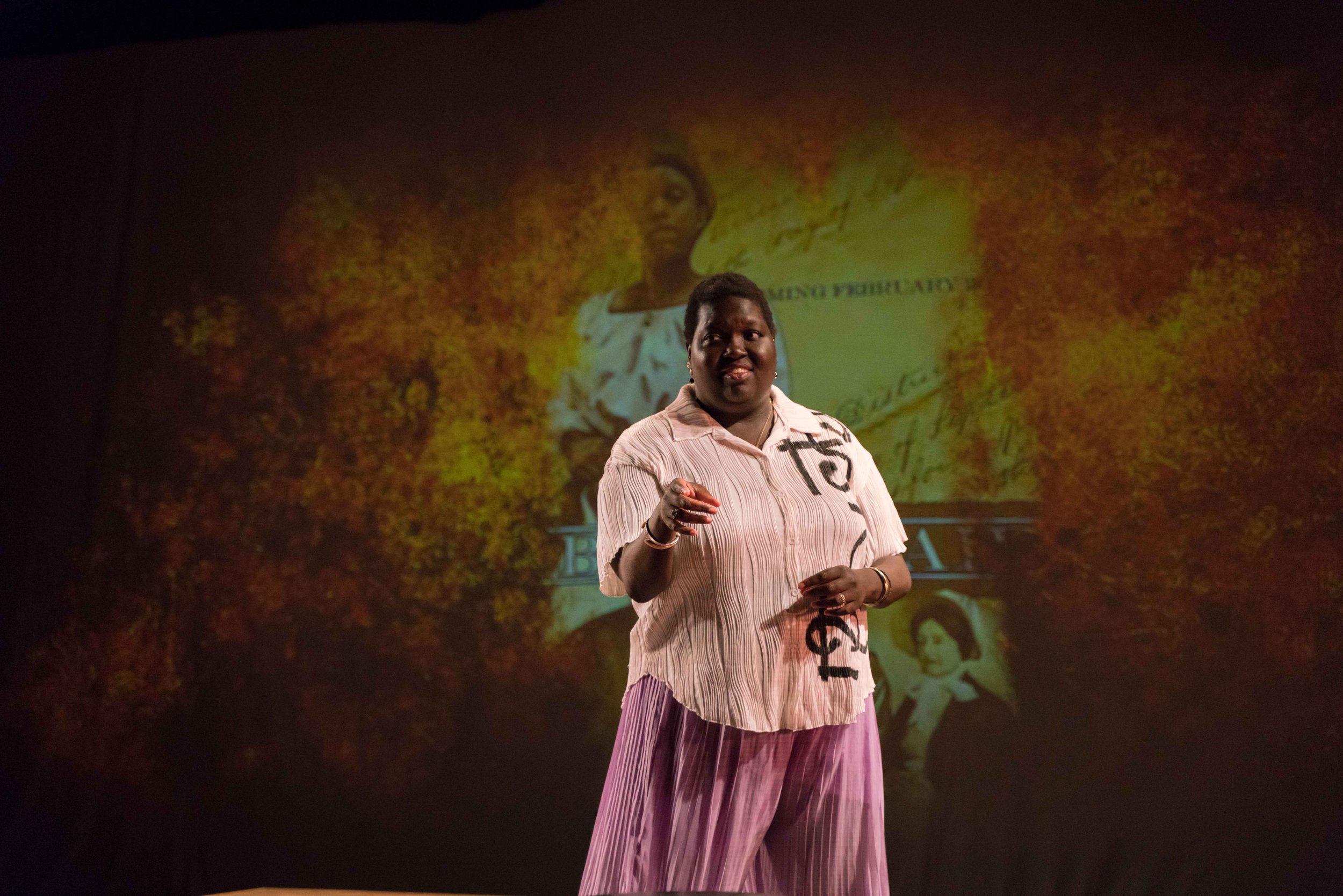
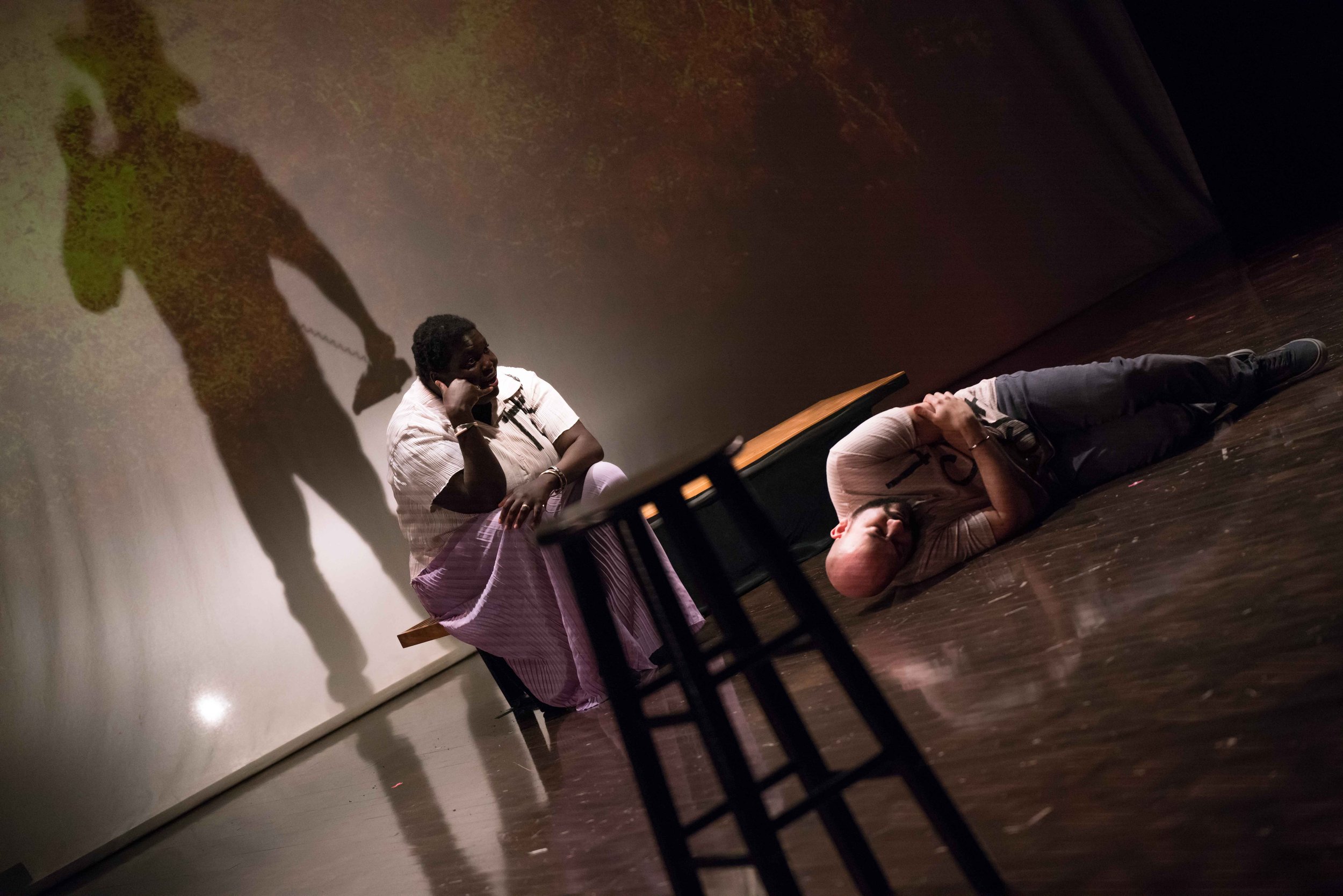
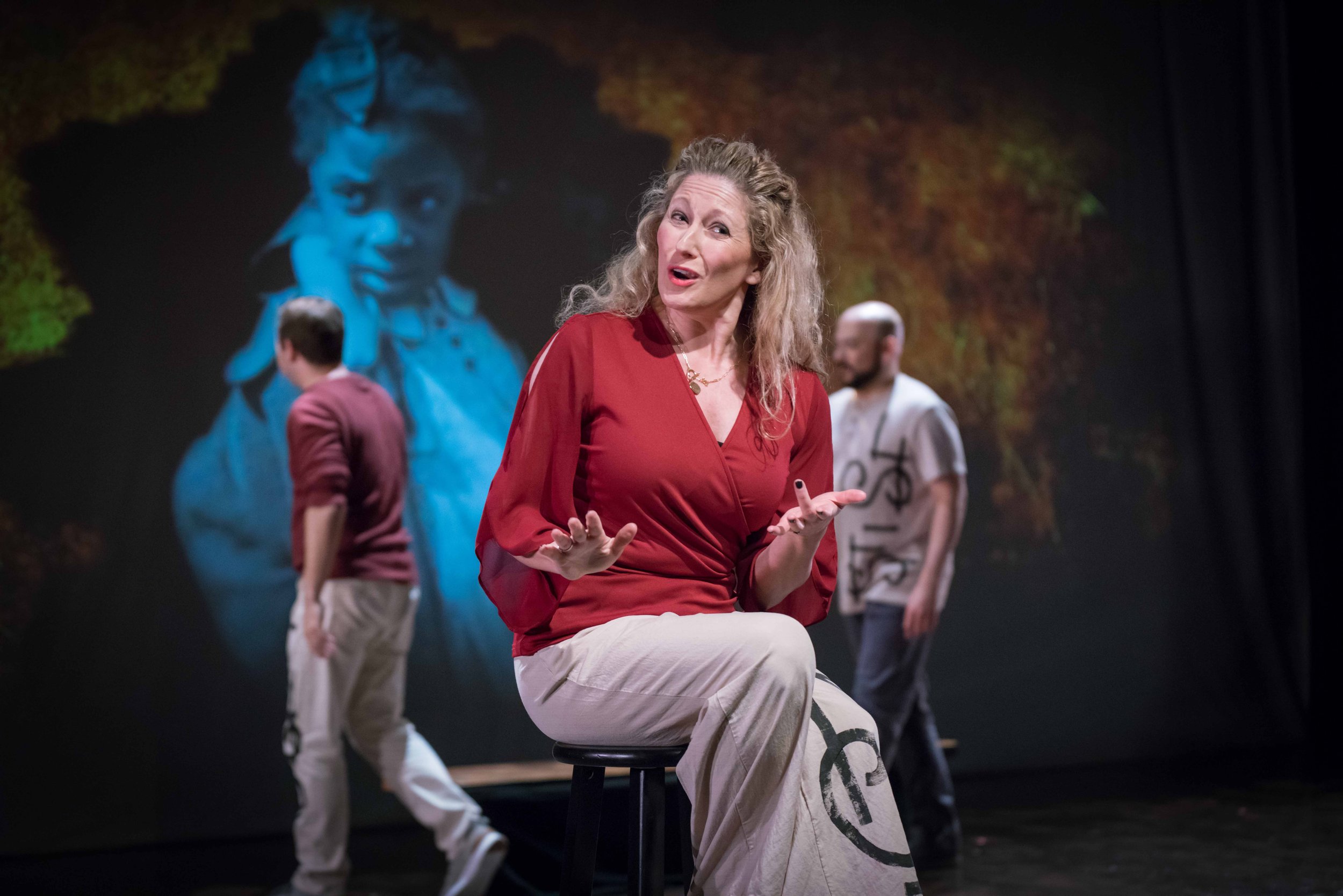
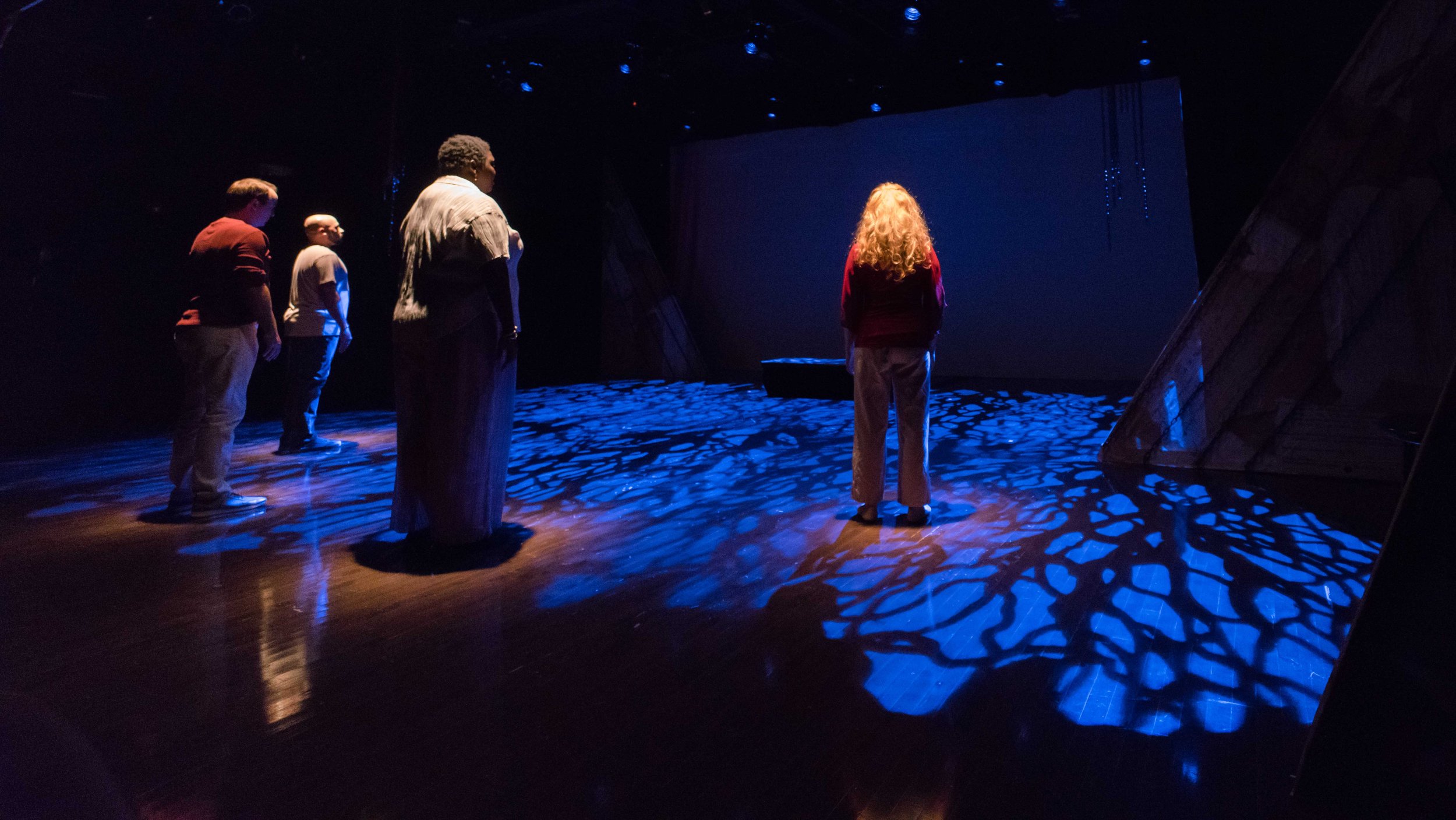
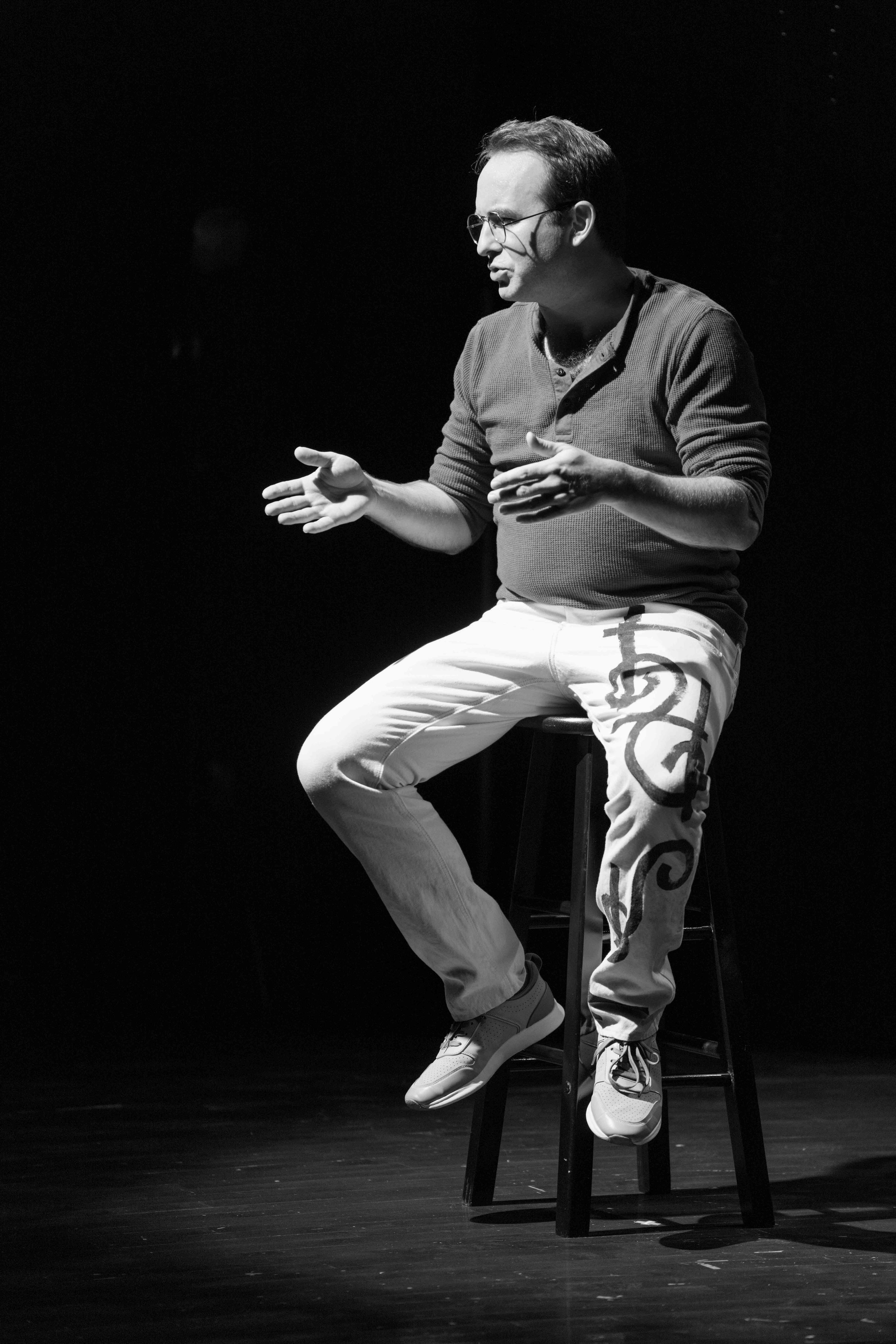
‘Out Of The Vineyard’ Presents The Performance Of True Accounts Of 18th & 19th Century Enslaved Black Prince Georgians Taking Their Bondage Holders To Court—And In Many Cases—Winning Their Freedom
Story and Photography By Raoul Dennis
Performance Photography By Sabir Elmouakil Appears Courtesy Joe’s Movement Emporium
The historic cases of Joseph Cinque, Elizabeth Freeman and Dred Scott are well known for their judicial stand for their freedom from bondage. Less known are cases of numerous slave lawsuits throughout the nation’s history—especially those that occurred in the DMV area.
This is where author William G. Thomas III’s writing begins. His book, “A Question of Freedom: The Families Who Challenged Slavery from the Nation’s Founding to the Civil War (November 2020,,” sheds light on the fact that among the hundreds of suits filed by enslaved African Americans, many cases were brought in Maryland—specifically in Prince George’s County. One case included his own family who were slave holders at the time.
“For over 70 years and five generations, the enslaved families of Prince George’s County, Maryland filed hundreds of suits for r their freedom against a powerful circle of slaveholders, taking their cause all the way to the Supreme Court,” Thomas writes in his book jacket.
Why Every Prince Georgian Should Read ‘Freedom’ and See ‘Vineyard’. Click Here.
“The book is about the enslaved families of Prince George's County in Maryland. It's all about Prince George's County, and it's about the freedom suits that slaves brought here right after the American Revolution. They challenged slavery in court,” he said in an interview with Prince George’s Suite Magazine.
Playwright Psalmayene 24’s adaptation boldly takes on Thomas’ book through a dramatic performance art presentation running at Joe’s Movement Emporium.
“Learning the history of freedom suits in the book A Question of Freedom left me wanting to know more about the resilience of enslaved people to use the court system to gain freedom, and why I didn’t know about it,” says Brooke Kidd the founder and executive director of Joe’s Movement Emporium. “Psalm is capturing the cultural environment of America grappling with race and equity. He is bringing to light that slavery is not just Black history, but American history. It takes humility to look at our past. But this is needed to move justice and equity forward.”
It’s a roller coaster ride across timelines and character changes by the four actors who blend theater, movement and dance to present multiple stories and cases through Maryland and Washington, D.C. Director /Choreographer Tony Thomas delivers a highly talented cast in a format that rivals any contemporary pop culture, multiverse action movie. The one-act performance moves, shifts and weaves through history, tragedy, culture and family stories. Long-time and generational residents of the DMV note the references to iconic locations, people and moments in modern history with nostalgic affection (the voiceover words of late former Prince George’s County Executive Wayne Curry are included among them).
“I think that the play lives at the intersection of history and performance, and it's not really done in a way that people typically understand theater to be done because it integrates movement and elements of projection and character work in its pieces of interviews,” says Psalmayene 24. “We've really created something that's unique and original in terms of the form of theater.”
The unique format wasn’t arrived at lightly. Using “A Question of Freedom” as the base source, Psalmayene 24 sought to write a docudrama and did the interviews, research and leg work to make it happen.
“Eventually, I landed on doing verbatim theater or docudrama, is what we call it,” Psalmayene 24 says of his decision on how to present the story. “I decided to interview people connected to this history. People descendants of the families that are mentioned in the play. I interviewed Will Thomas, the author of the book. I interviewed a Prince George’s County judge to really get a person who was involved in the legal side of things. and then we created this play based on these interviews. There're seven primary characters in the play, and their stories are interweaved and woven throughout the play, and there's movement in it and projections. More than anything, what I really wanted to do was really contemporize the experience of enslavement.”
When asked if he thought the more abstract and performance approach detracts from audiences learning more about slave suits in the county, which some audience members said they thirsted for, Psalmayene 24 shared Out of the Vineyard as an enticing, entertaining doorway to learn more by reading the book.
“I think this play is an introduction to what slave suits [were]. I hope most people will walk away understanding just from a very basic standpoint that slave suits were the lawsuits that enslaved peoples waged in courts pre-Emancipation Proclamation, and that a number of these people won their freedom,” Psalmayene 24 says. “[The performance] is meant to give people a chance to hear voices of these specific people and then whet their appetite and curiosity to actually read Will's book because that's where you get all the information and the details. The experience of the play is to open that door for you, and then wherever you go from there is really a choose-your-own-adventure kind of deal.”
Thomas shares Psalmayene 24’s expectation. Writing the award-winning book has been a dedicated journey in research and discovery for Thomas because his own family history is tied directly to cases in Duckettsville but he fully expected the work to take on a life of its own once published.
“In the book, I describe my own family's roots in Prince George's County in Maryland,” he says. “I'm a descendant of slaveowners, of people who in the 18th century, in 17th century were tobacco planters and enslavers. Part of the story here and part of the book is I want to bring the reader---I want to bring you along on my journey to reckon with that.”
It’s why Thomas says his greatest hope is that the book and play resonate with Prince Georgians.
“These freedom suits that I write about start here,” says the author and University of Nebraska history professor. “They start in Prince George's County. Many of the families who bring these lawsuits are from Prince George's County. We're talking about the 1790s, the early 1800s. It's a story that's grounded in Prince George's County. I wanted the story to resonate here. I wanted that history to come alive here.”








